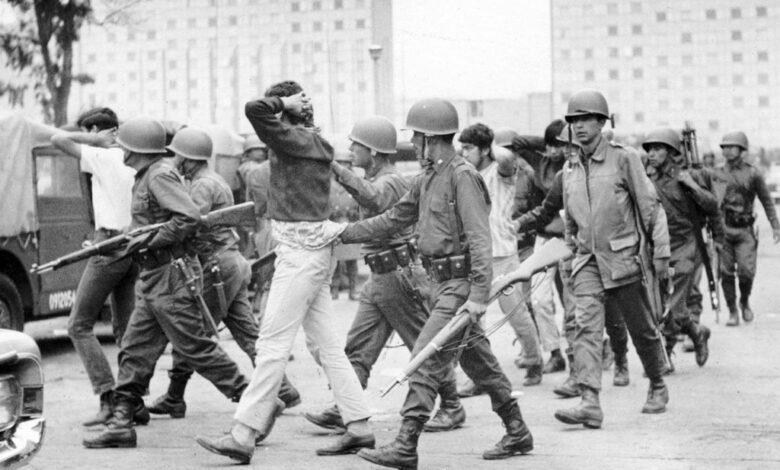Mexico City, Mexico, August 19, 2024 - From 1965 to 1990, the Mexican State was responsible for “systematic and widespread” human rights abuses “against broad sectors of the population,” according to the recently published report of a truth commission on Mexico’s dirty war.
On Friday, August 16, after nearly three years of investigation, the Commission for Access to Truth, Historical Clarification and the Promotion of Justice for Grave Human Rights Violations committed between 1965 and 1990 (COVEHJ in Spanish) presented Fue el Estado (1965-1990), the first of two planned reports on the 25-year dirty war period. Commissioners Abel Barrera Hernández, David Fernández Dávalos, and Carlos A. Pérez Ricart revealed their findings at the Centro Cultural Universitario Tlatelolco in Mexico City.
The commissioners accused the Mexican State of unleashing a violent counterinsurgency campaign against perceived opponents—not only armed guerrillas, but a range of dissident groups the government believed threatened the political, economic, and moral stability of Mexico’s ruling party. During their presentation, the commissioners were accompanied on stage by human rights defenders and activists, who read excerpts from some of the 1,079 testimonies given by survivors during the commission’s investigations.
Fue el Estado consists of five volumes totaling 3,510 pages. Among the report’s findings, investigators identified 8,594 victims of 11 distinct types of grave human rights violations, recorded 46 previously unreported massacres, and identified 591 individuals and 59 state institutions as responsible for human rights violations during the dirty war.
The COVEHJ was established through Presidential Decree on October 6, 2021, as a result of an agreement between the Mexican government and collectives of activists, historians, relatives, and victims of state repression. Two teams within the Mechanism for Truth and Historical Clarification (MEH in Spanish), the investigative body created by the COVEHJ, conducted extensive archival research and collected testimonies from victims throughout the country. The reports produced by the two MEH teams seek to clarify this violent period, as well as provide recommendations for the Mexican government to address the ongoing struggle for justice for victims. The second report, from the team led by Eugenia Allier Montaño, will be released in September.
Fue el Estado stresses the importance of access to declassified U.S. documents and recommends that the Mexican government request a large-scale declassification of additional U.S. secret archives from the dirty war period. The commissioners urged the incoming government of President-elect Claudia Sheinbaum—who will take office on October 1—to make the request a priority.
The National Security Archive’s Mexico Project has worked with the MEH teams to access and evaluate archival U.S. records since 2022. Project Director Kate Doyle and Assistant Director Claire Dorfman curated a special collection of declassified U.S. documents and provided expert analysis to support the investigations. In the coming weeks, the Archive will publish an Electronic Briefing Book with a selection of these dirty war documents along with English translations of key sections of the commission's two reports.
Read the Fue el Estado (1965-1990) report here.

